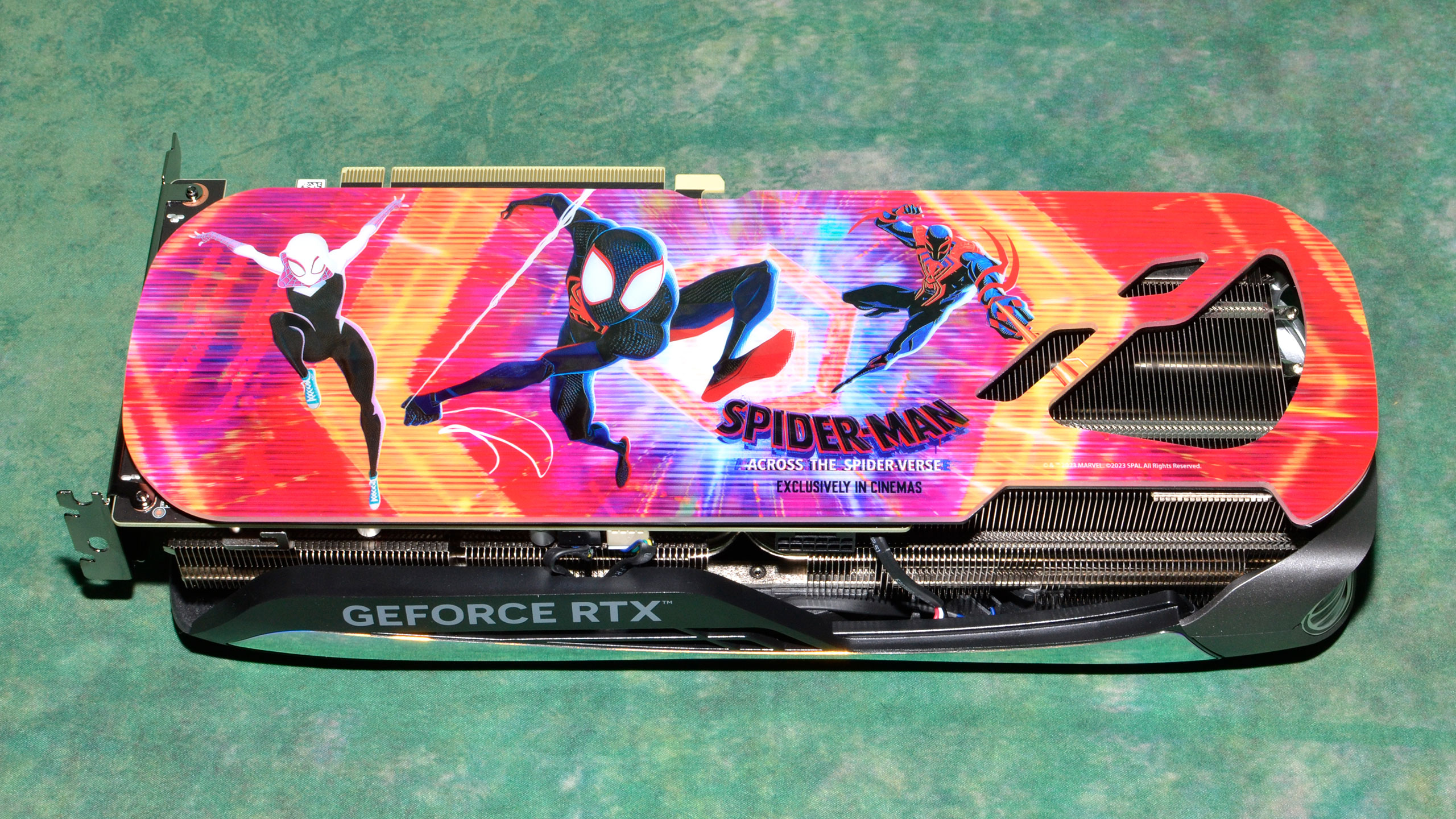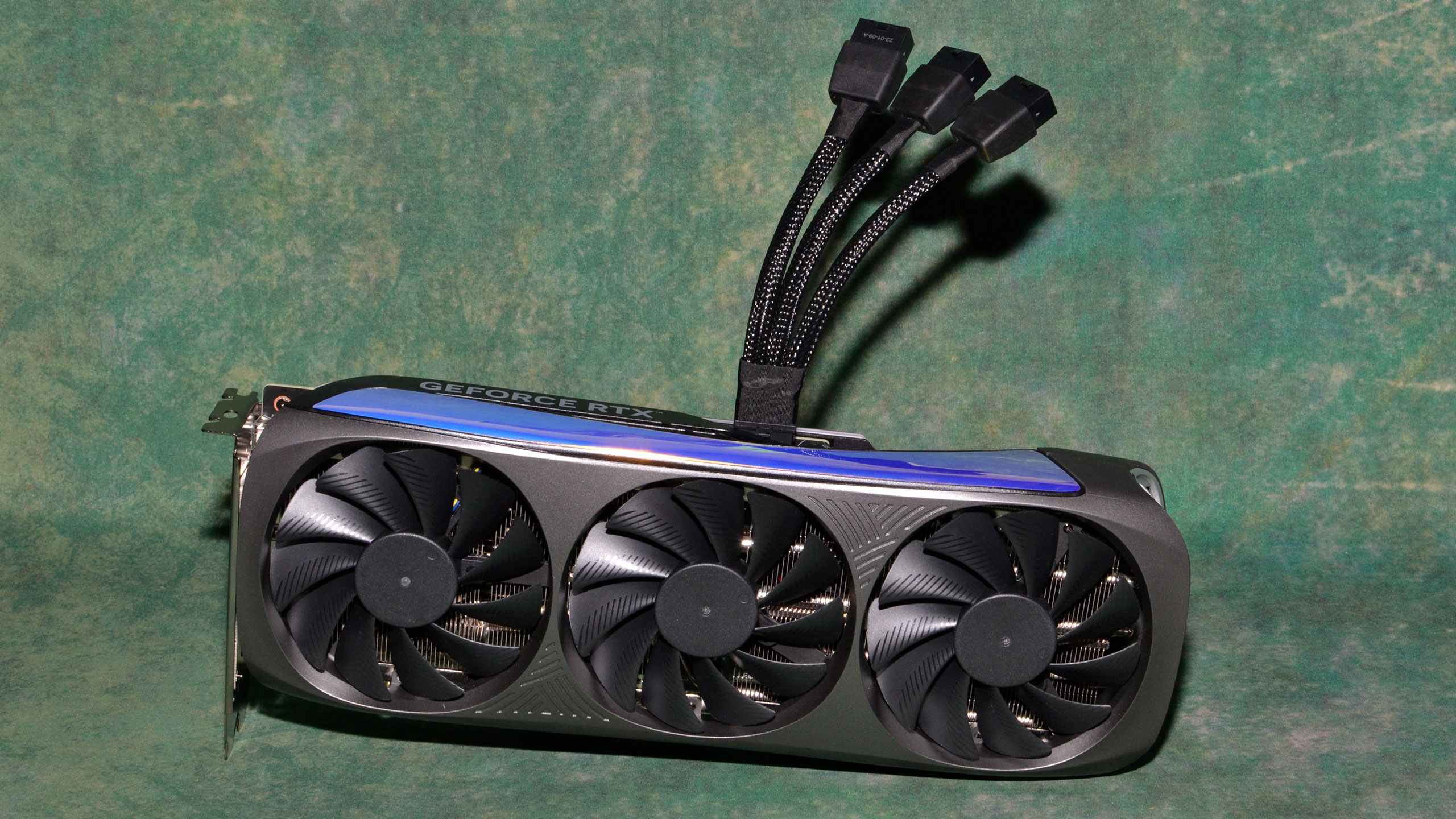Why you can trust Tom's Hardware
Our power, clocks, and temperature testing now utilizes the same test suite as our gaming benchmarks, as the PCAT v2 hardware and FrameView software lets us collect this data alongside frametimes. We're also using our updated Core i9-13900K platform, so we're less likely to have CPU or platform limitations playing a role.
We have 4K, 1440p, and 1080p charts for power, GPU clocks, and temperatures below. Then we do a test using Metro Exodus Enhanced at whatever "demanding for the GPU being tested" means, and after letting the game run for 15 minutes or more, we check noise levels. We'll present additional tables and information about efficiency (FPS/W) and value (FPS/$) at the bottom of the page.
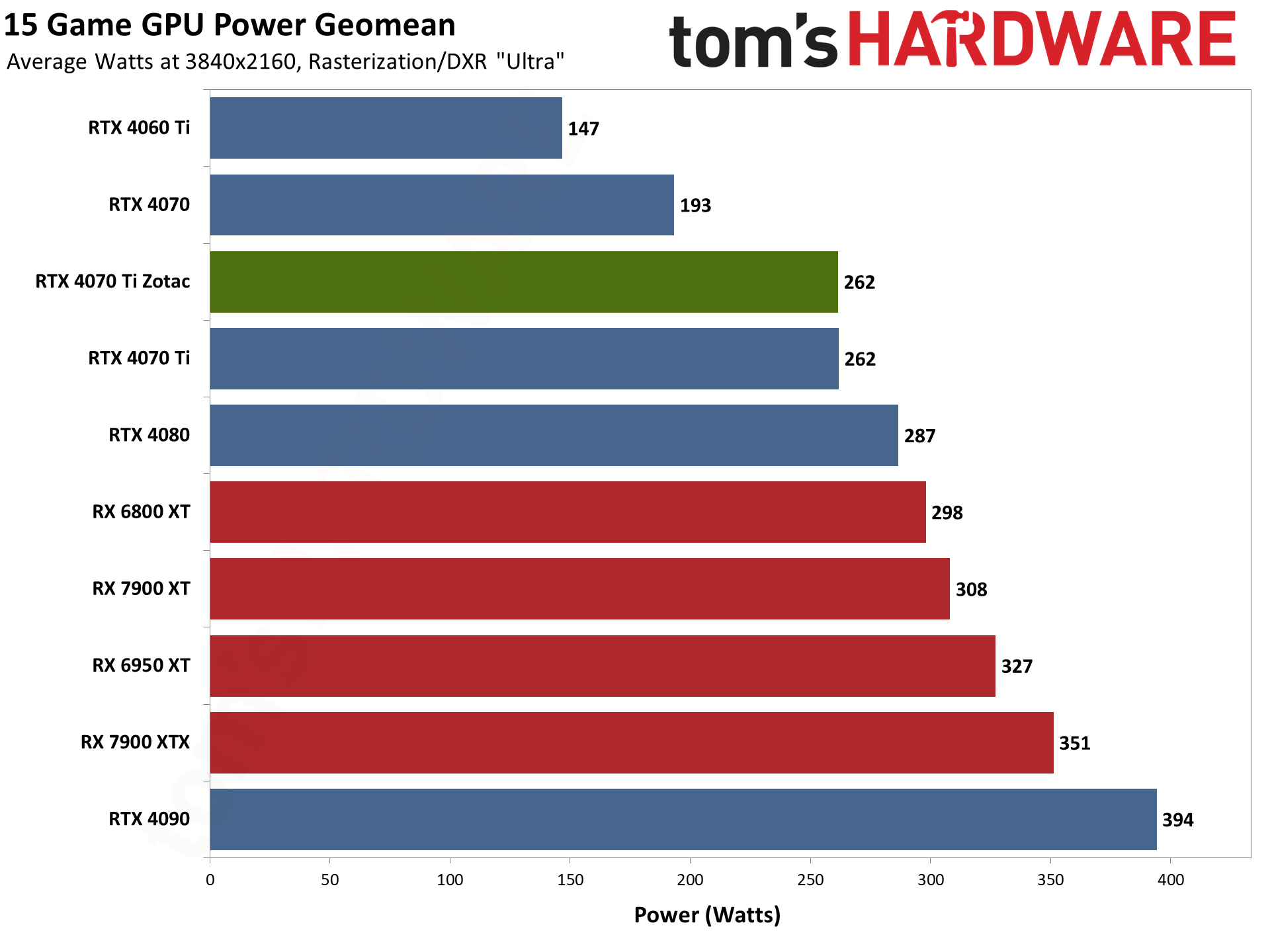
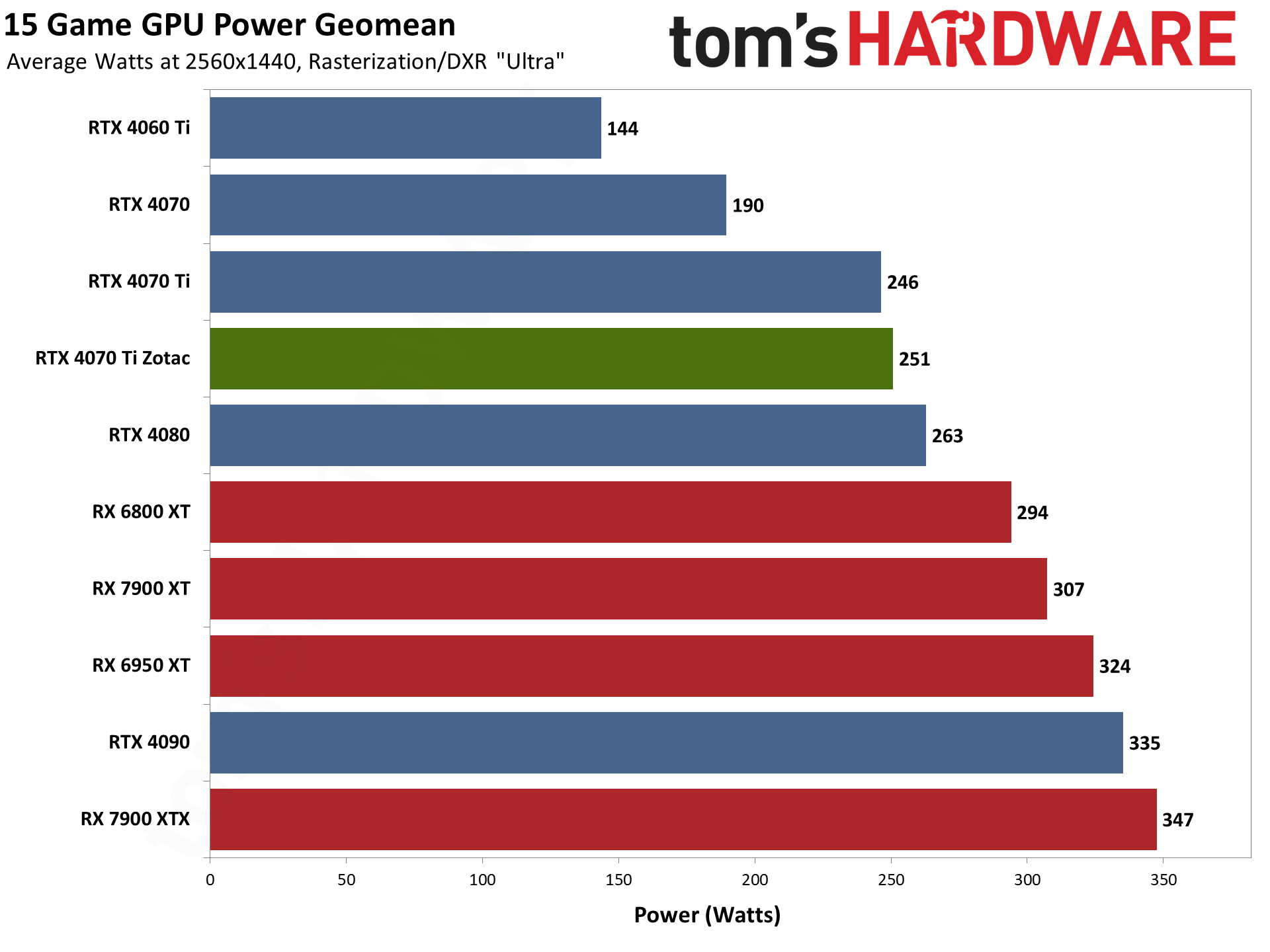
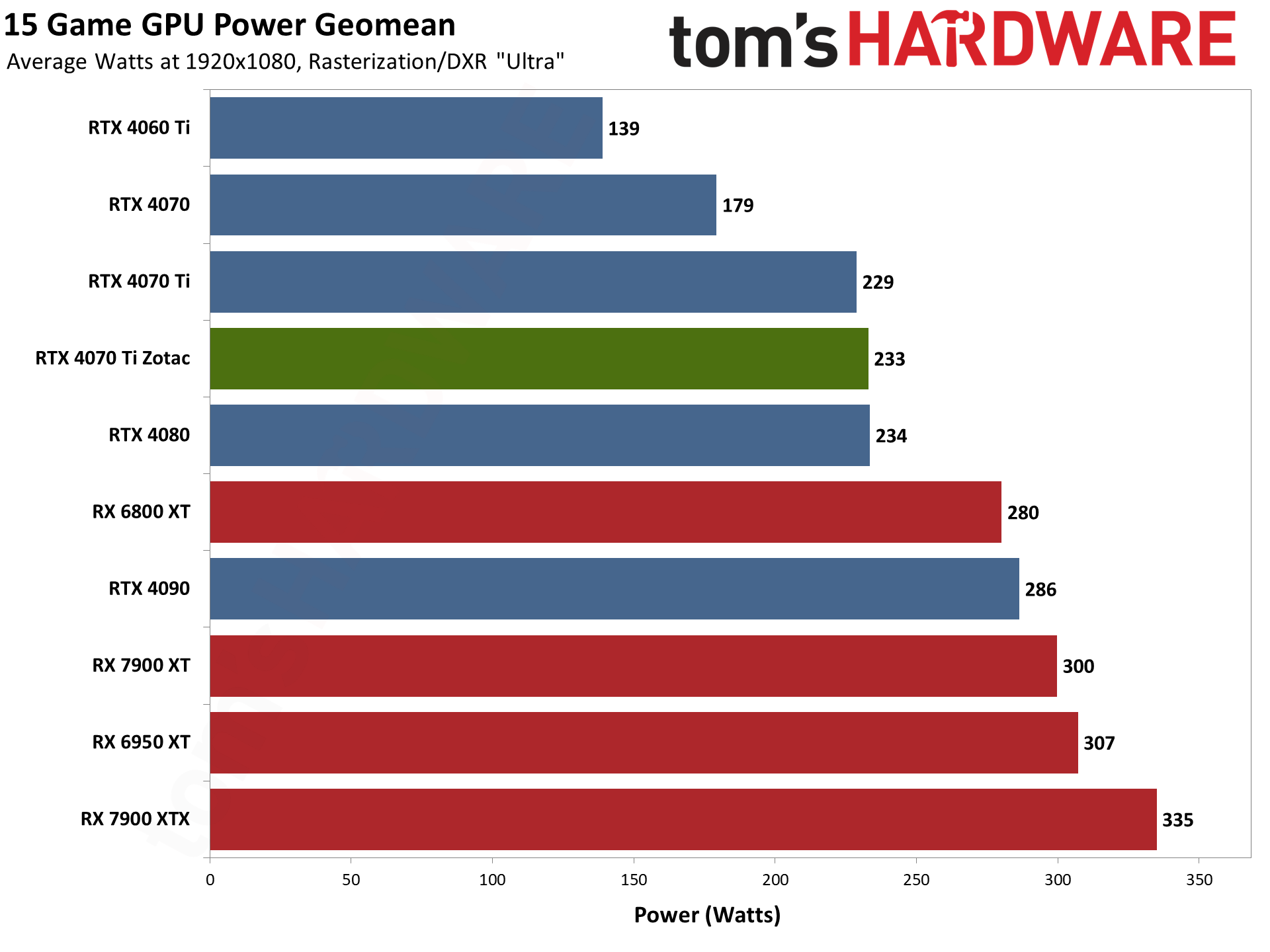
Power use is a strong point for Nvidia's Ada Lovelace architecture. The RTX 4090 might have a high 450W maximum TGP (Total Graphics Power) rating, but there are plenty of games where it will use under 400W. That's still a lot, but not actually that bad when you consider the performance level.
As for the Zotac RTX 4070 Ti, it ties the Asus RTX 4070 Ti and averages 262W at 4K. At 1440p, it uses slightly more power with 251W compared to 246W, while at 1080p it ties the RTX 4080 with 233W — another indication of how much CPU bottlenecks can play a role at lower resolutions. If we had a hypothetical infinitely fast CPU and the rest of the system, maybe the RTX 4070 Ti would land close to its rated 285W TGP in all of our tests, but reality tells a different story.
AMD's RX 7900 XT by way of comparison also lands below its rated 315 TBP (Total Board Power, which is nearly the same thing as TGP), but not by quite as big of a gap. It used 308W at 4K, 307W at 1440p, and 300W at 1080p. The RX 7900 XTX likewise was much closer to its rated 355W.
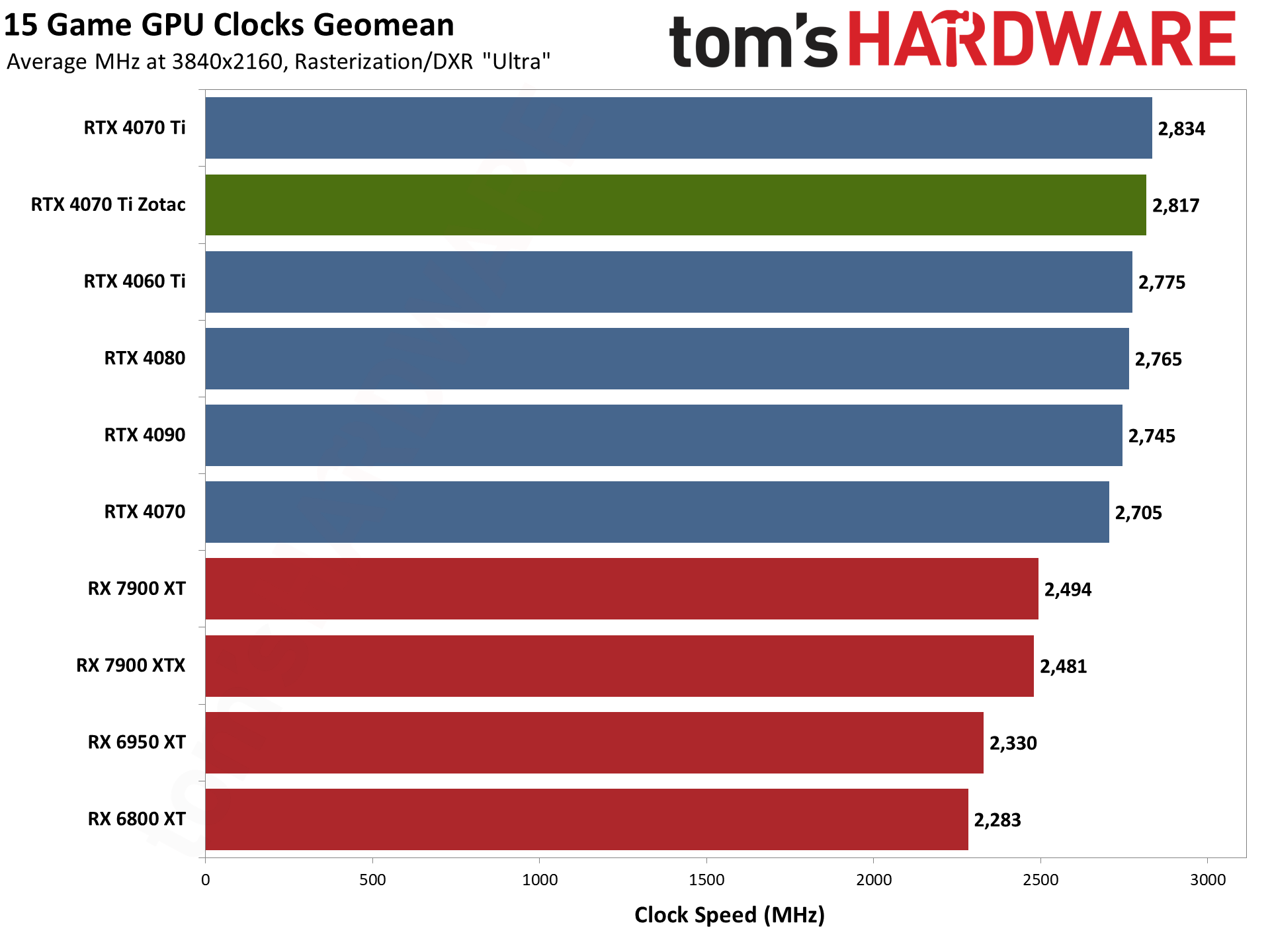
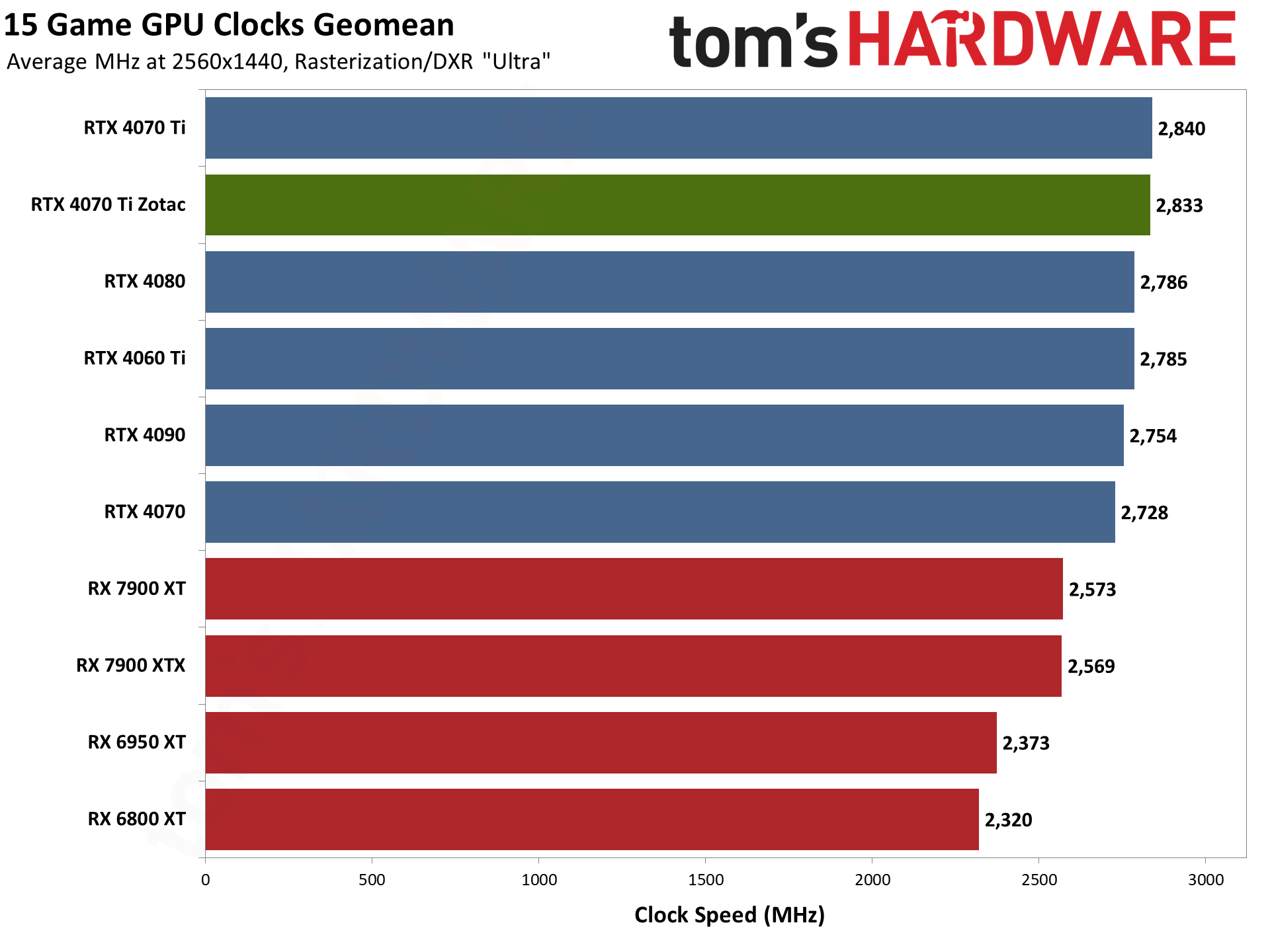

Clock speeds in themselves aren't that important, but within the same architecture, higher clocks equate to higher performance. Most of Nvidia's latest generation RTX 40-series GPUs have official boost clocks of 2.5–2.6 GHz, and it's obvious that these are very conservative figures.
Zotac's RTX 4070 Ti averaged 2817 MHz at 4K, 2833 MHz at 1440p, and 2843 MHz at 1080p — over 150 MHz higher than its rated 2670 MHz in many cases. The Asus 4070 Ti meanwhile clocked just a smidge higher, suggesting perhaps slightly superior cooling. That leads into the next charts.
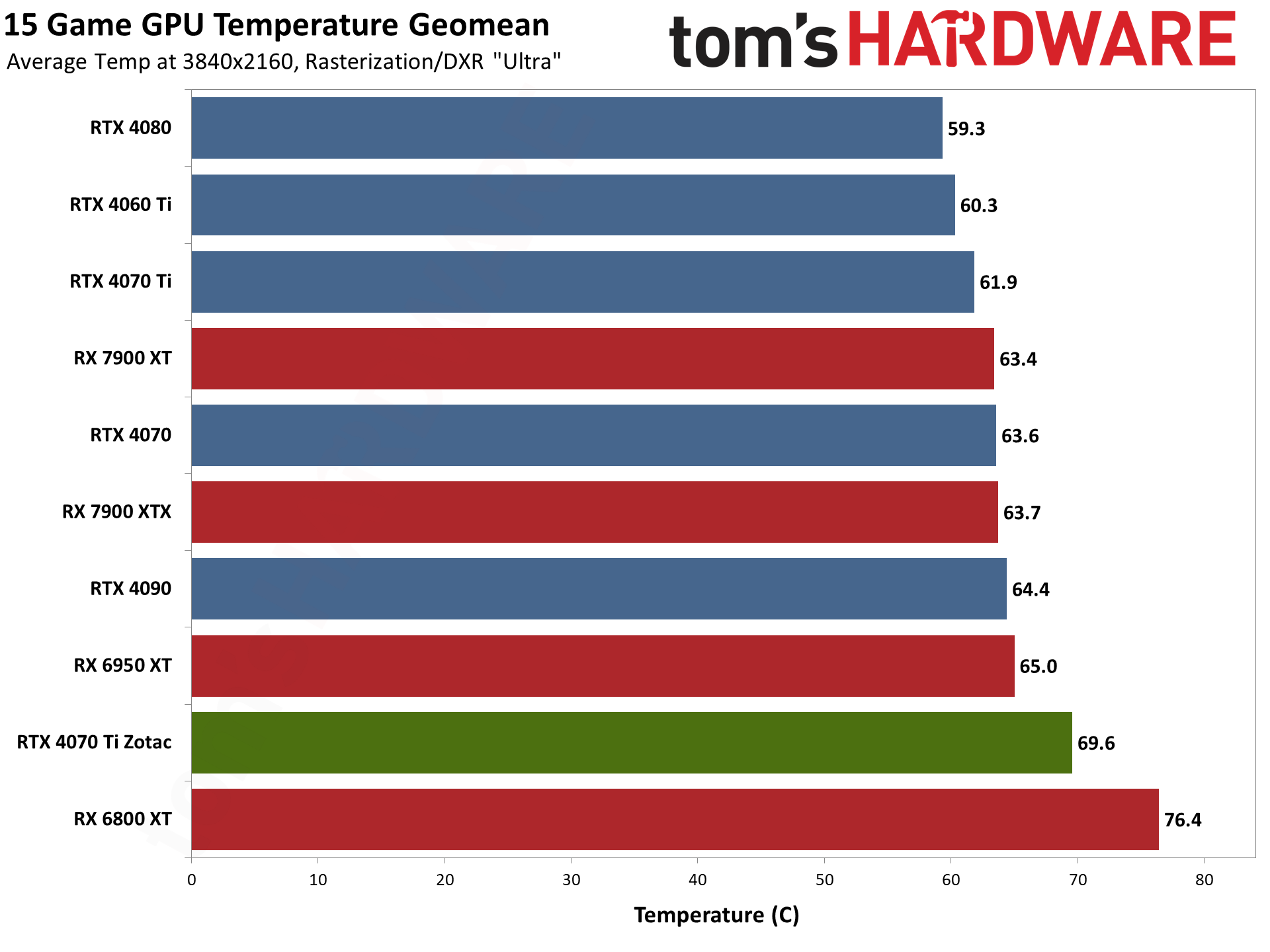

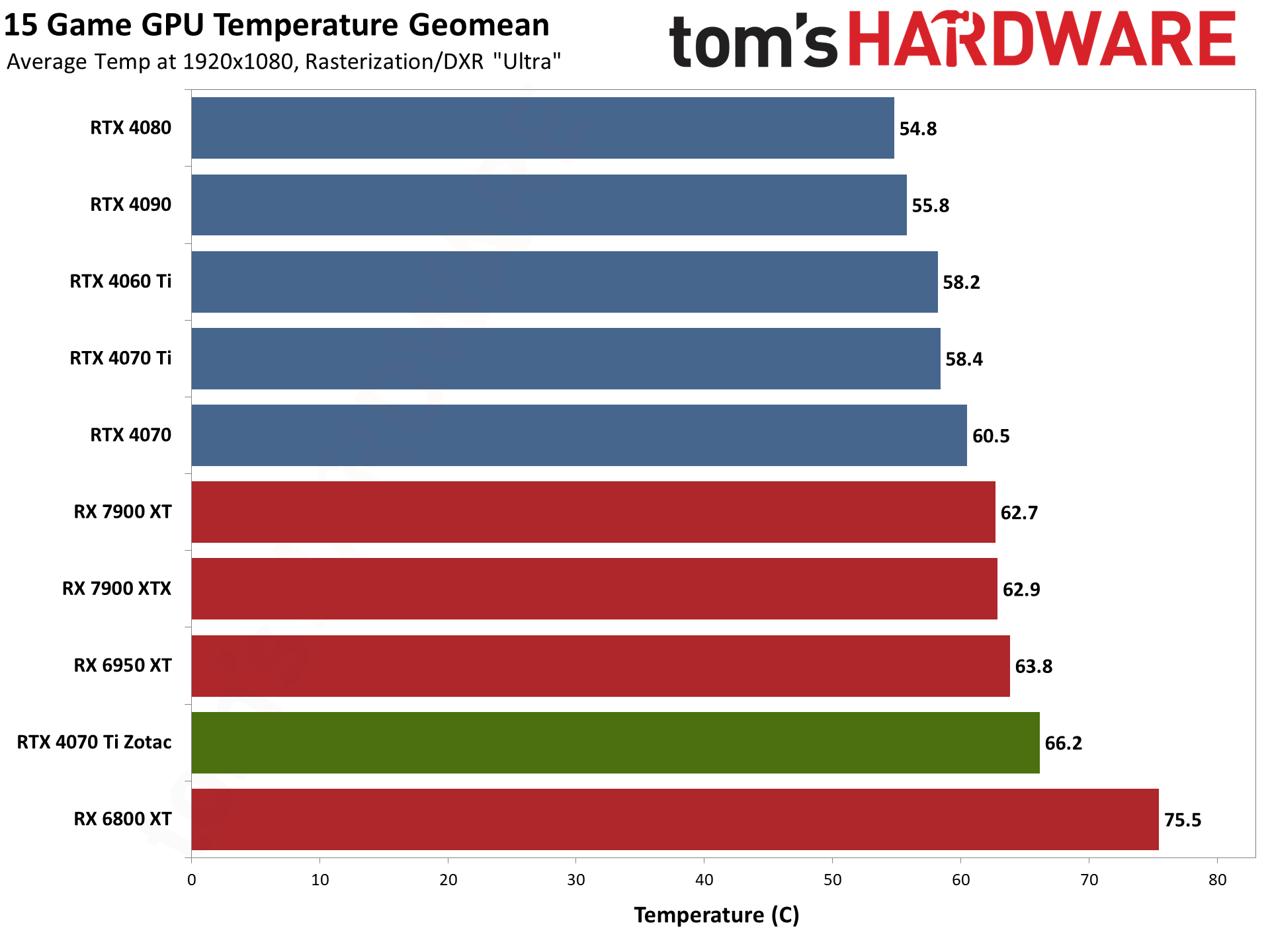
Graphics card manufacturers can opt for higher temperatures and lower fan speeds, or vice versa, but usually they aim for a balanced fan speed curve. Zotac's RTX 4070 Ti Amp Airo, here in Spider-Man™: Across the Spider-Verse garb, ends up doing slightly worse than most of the other GPUs.
We should note that all of this testing was done with the plastic backplate attached, which may actually make temperatures slightly worse. We don't think it obstructs airflow, but the metal backplate logically wouldn't dissipate heat as easily with a plastic cover attached. But we need to look at noise levels as well, which brings us to the final chart.
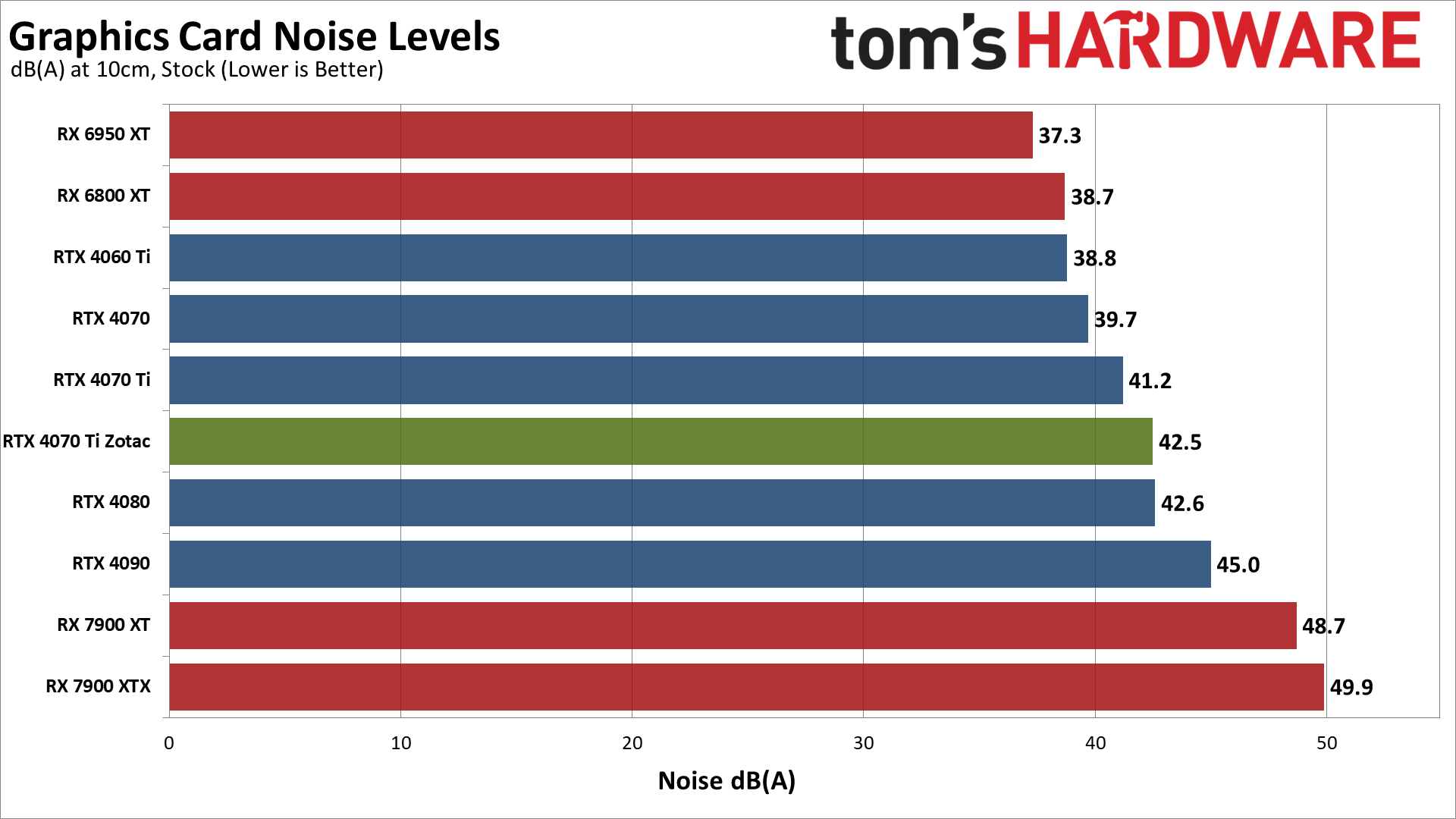
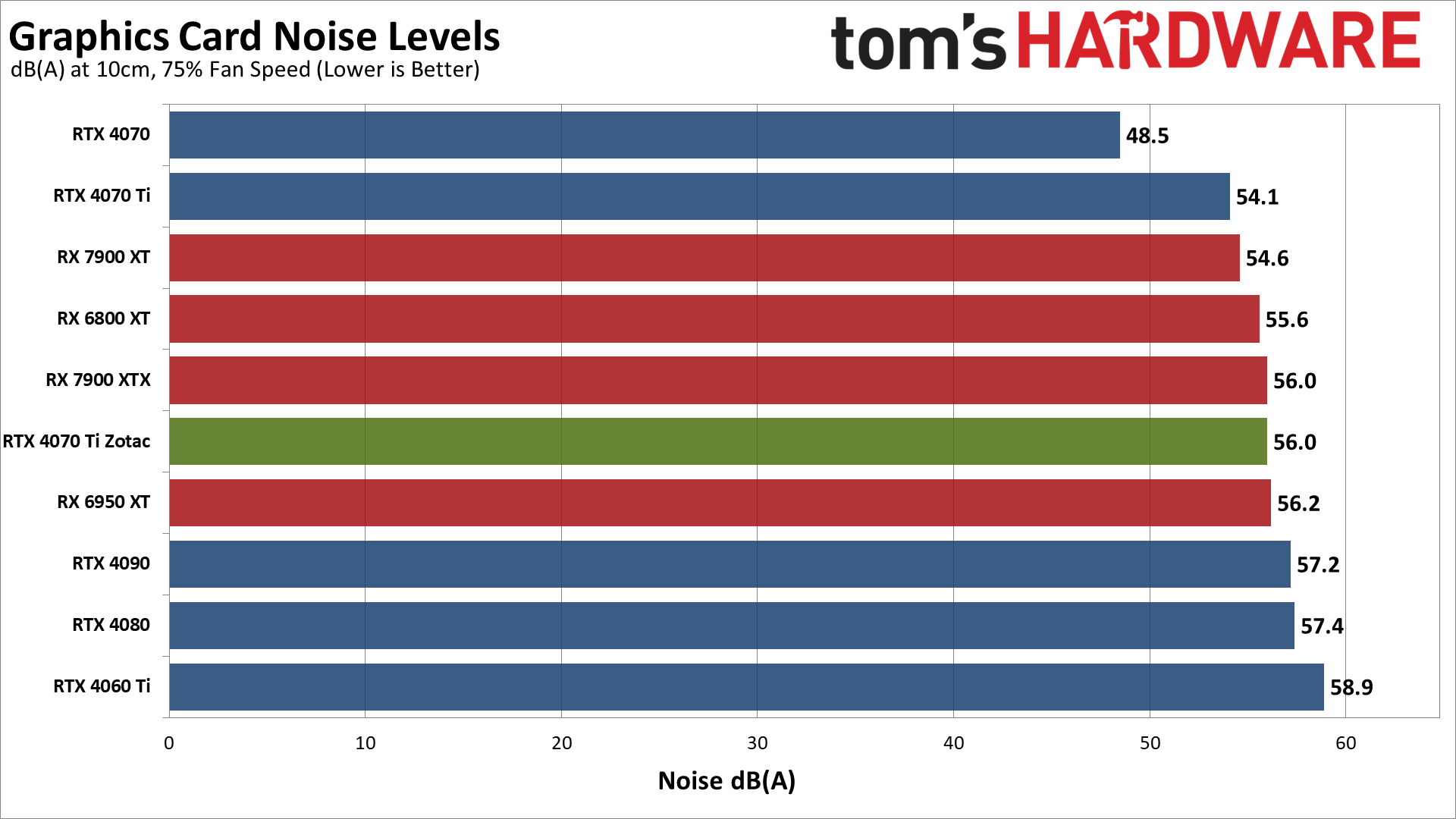
Finally, we check noise levels using an SPL (sound pressure level) meter placed 10cm from the card, with the mic aimed right at the center fan. This helps minimize the impact of other noise sources like the fans on the CPU cooler. The noise floor of our test environment and equipment is less than 32 dB(A).
After running Metro Exodus for over 15 minutes, the Zotac RTX 4070 Ti settled in at a fan speed of 42% and a noise level of 42.5 dB(A). That's pretty good as far as GPUs go, at least among cards that draw close to 285W of power. There are larger and quieter cards, and smaller and noisier cards as well. Zotac doesn't do exceptionally well in the noise department, but it's not particularly loud either.
We also tested with a static fan speed of 75%, which caused the Zotac RTX 4070 Ti to generate 56.0 dB(A) of noise. That's relatively loud, but again a pretty typical result. Most of the time, the card shouldn't be getting anywhere near 75% fan speed.
GPU Value and Efficiency
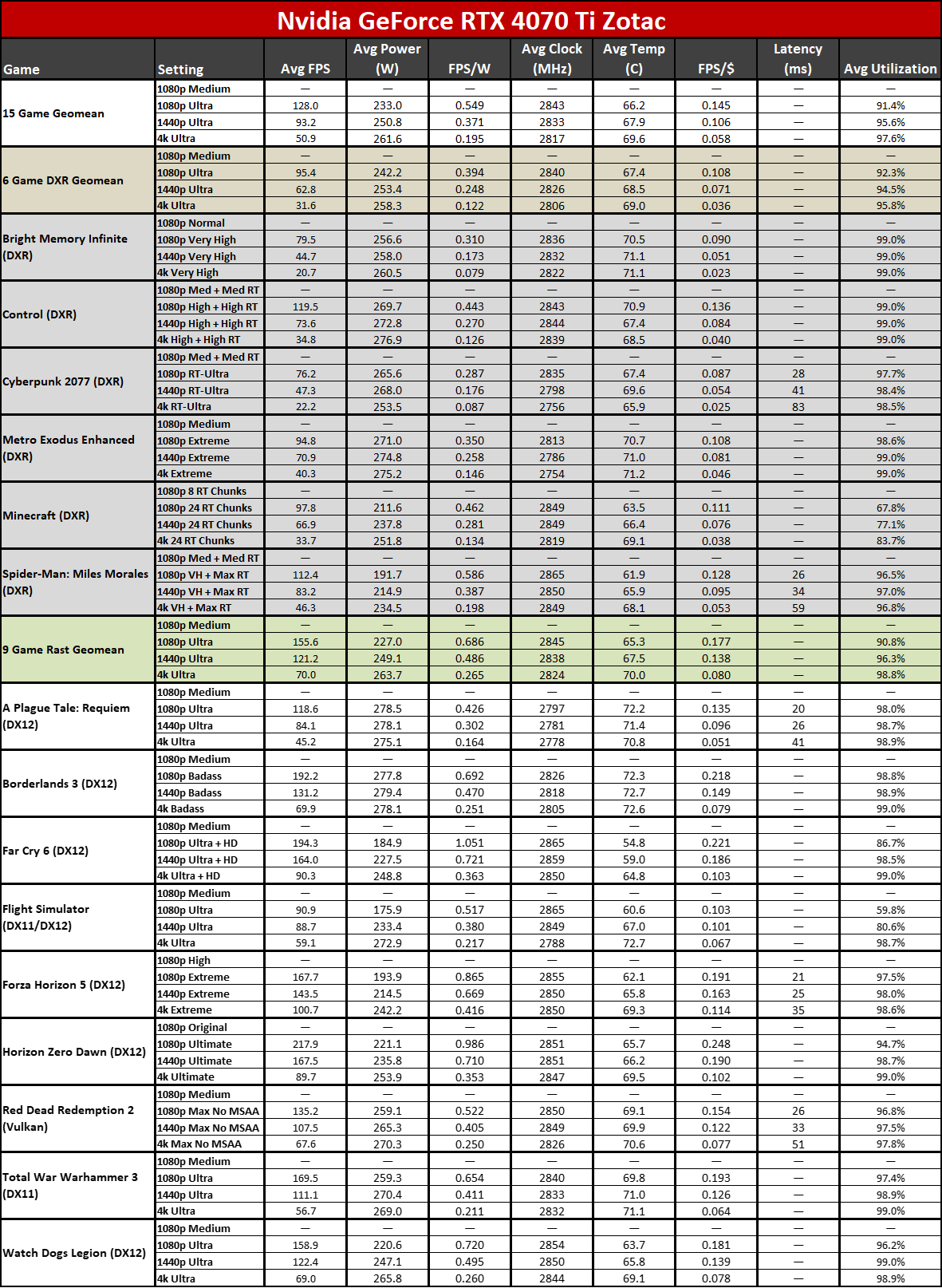
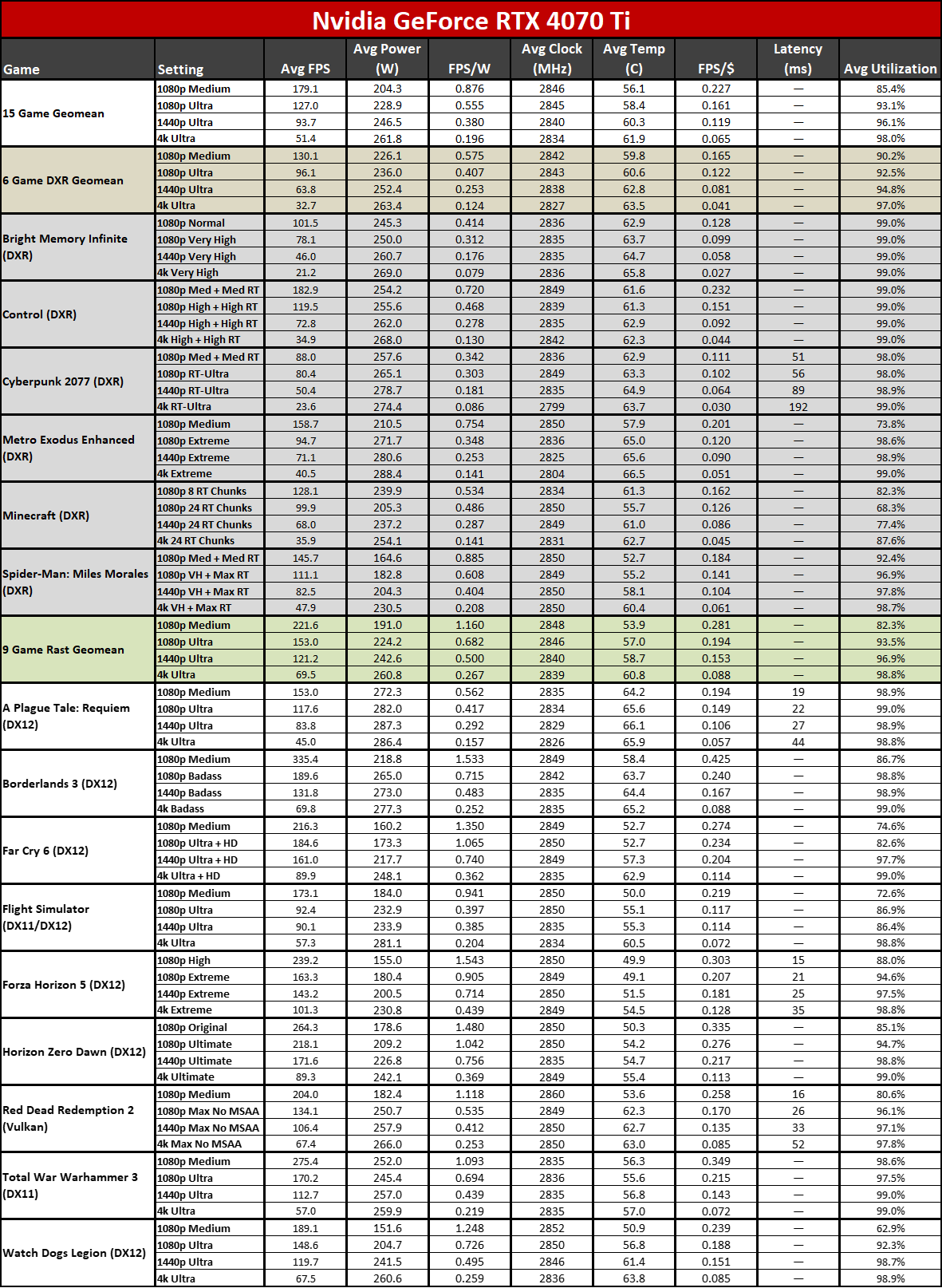
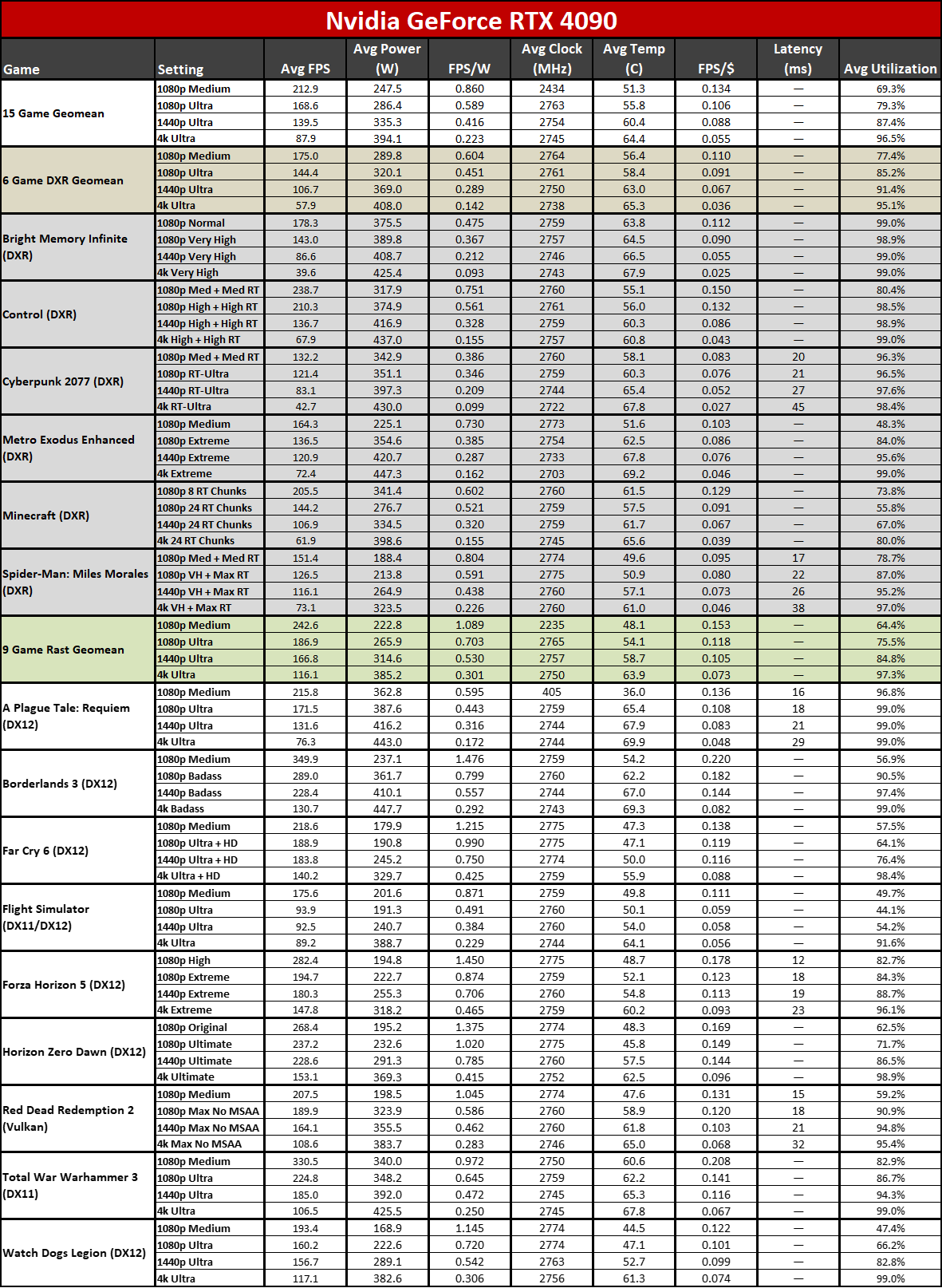
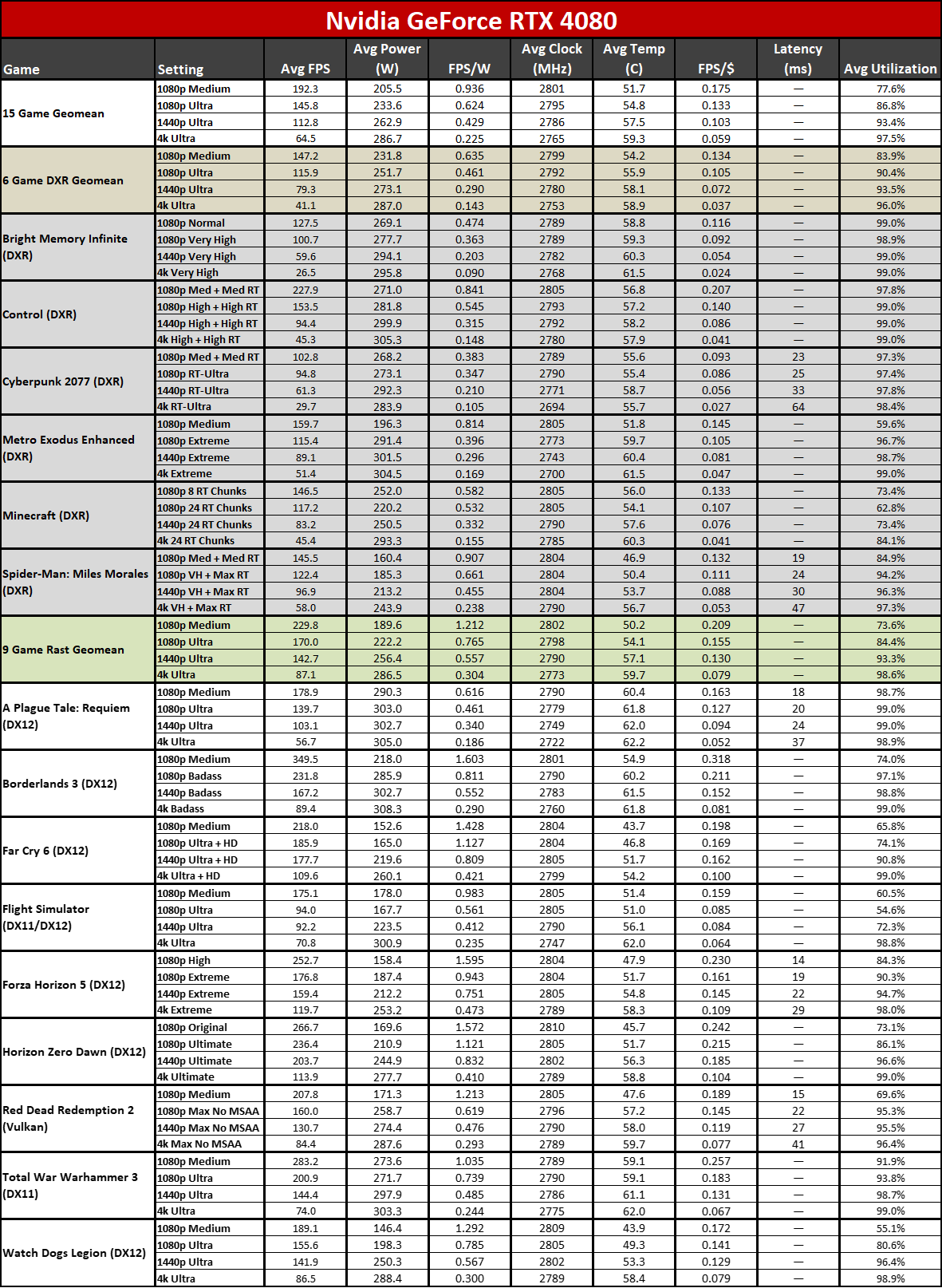
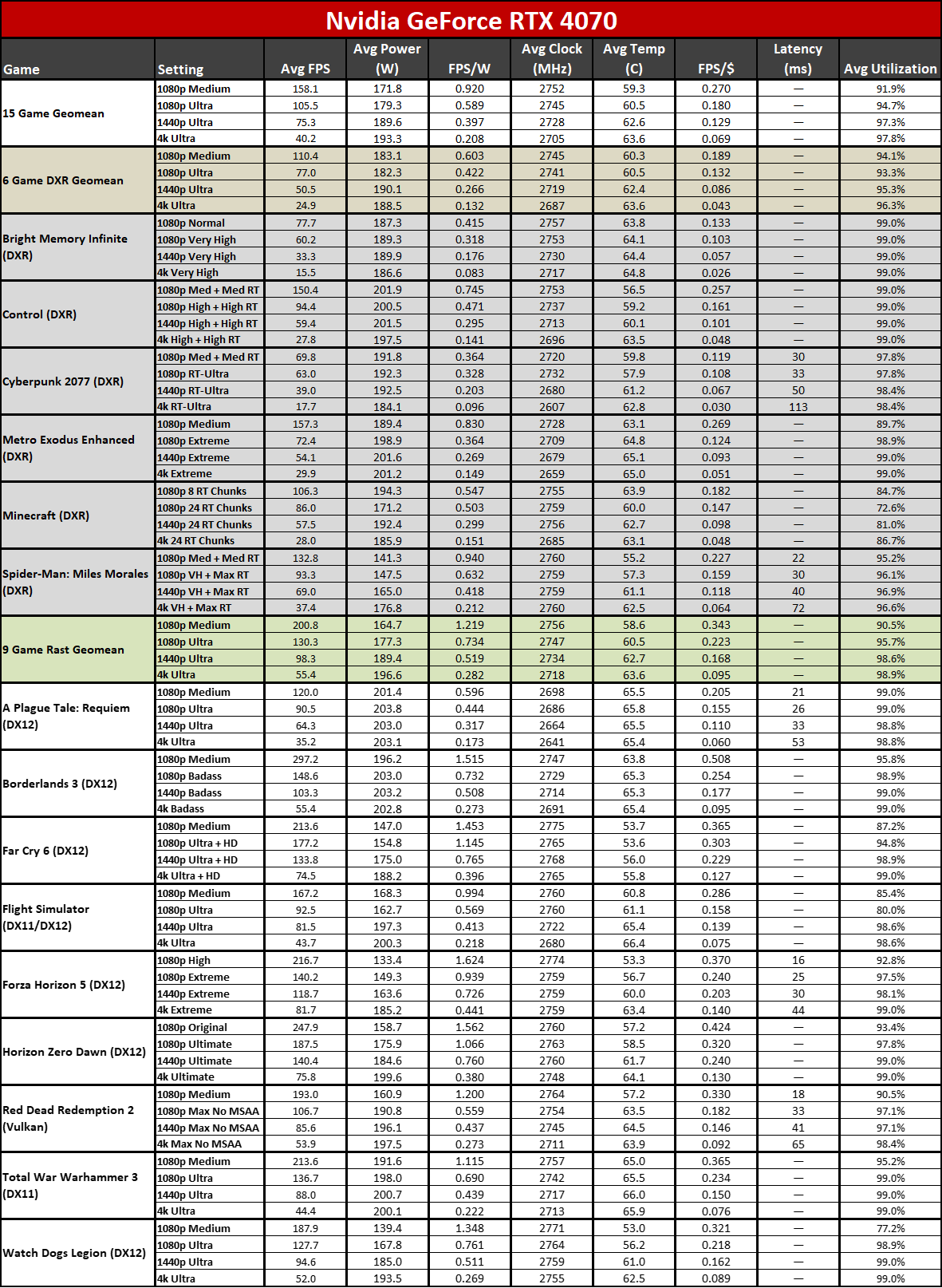
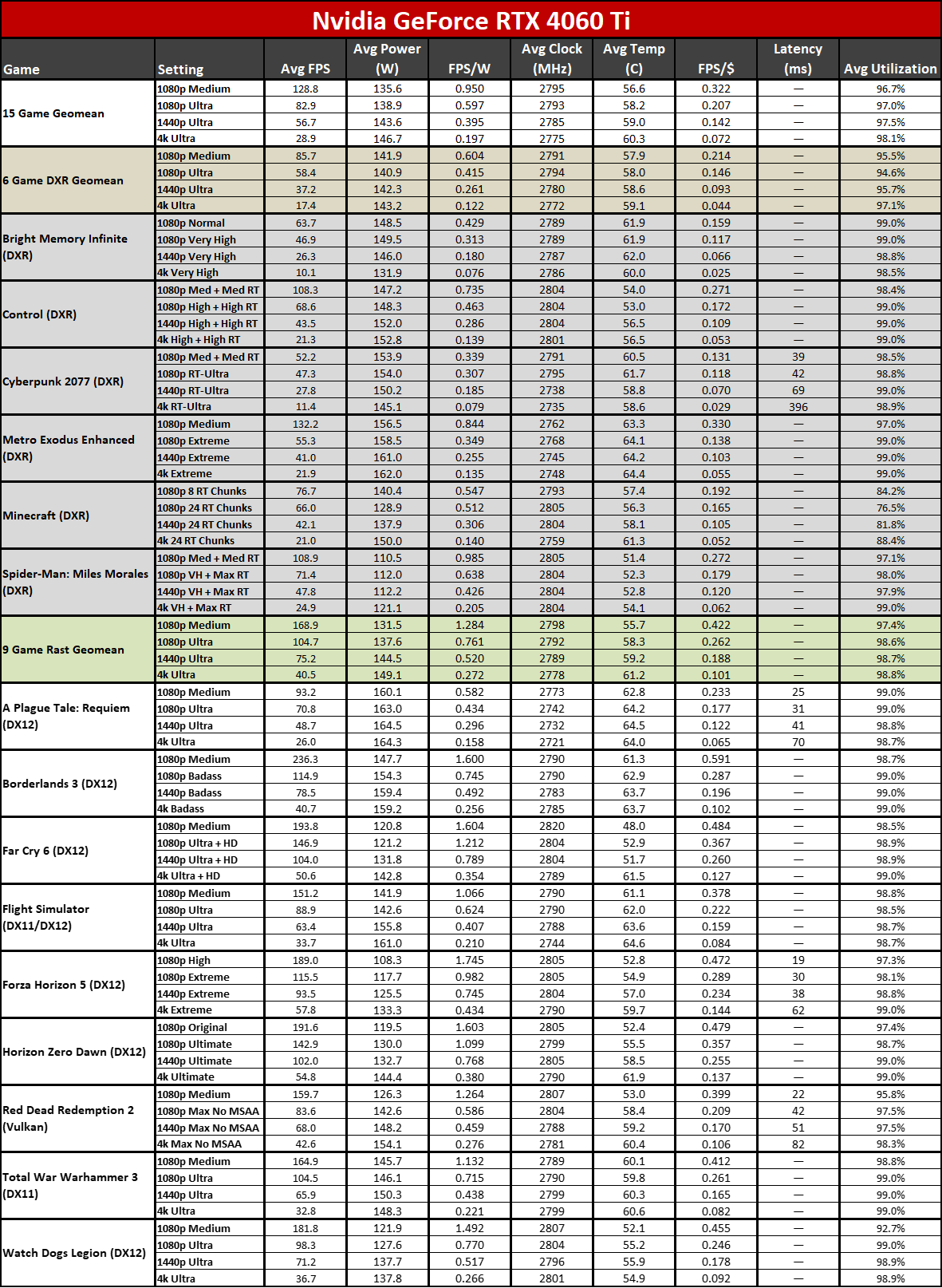
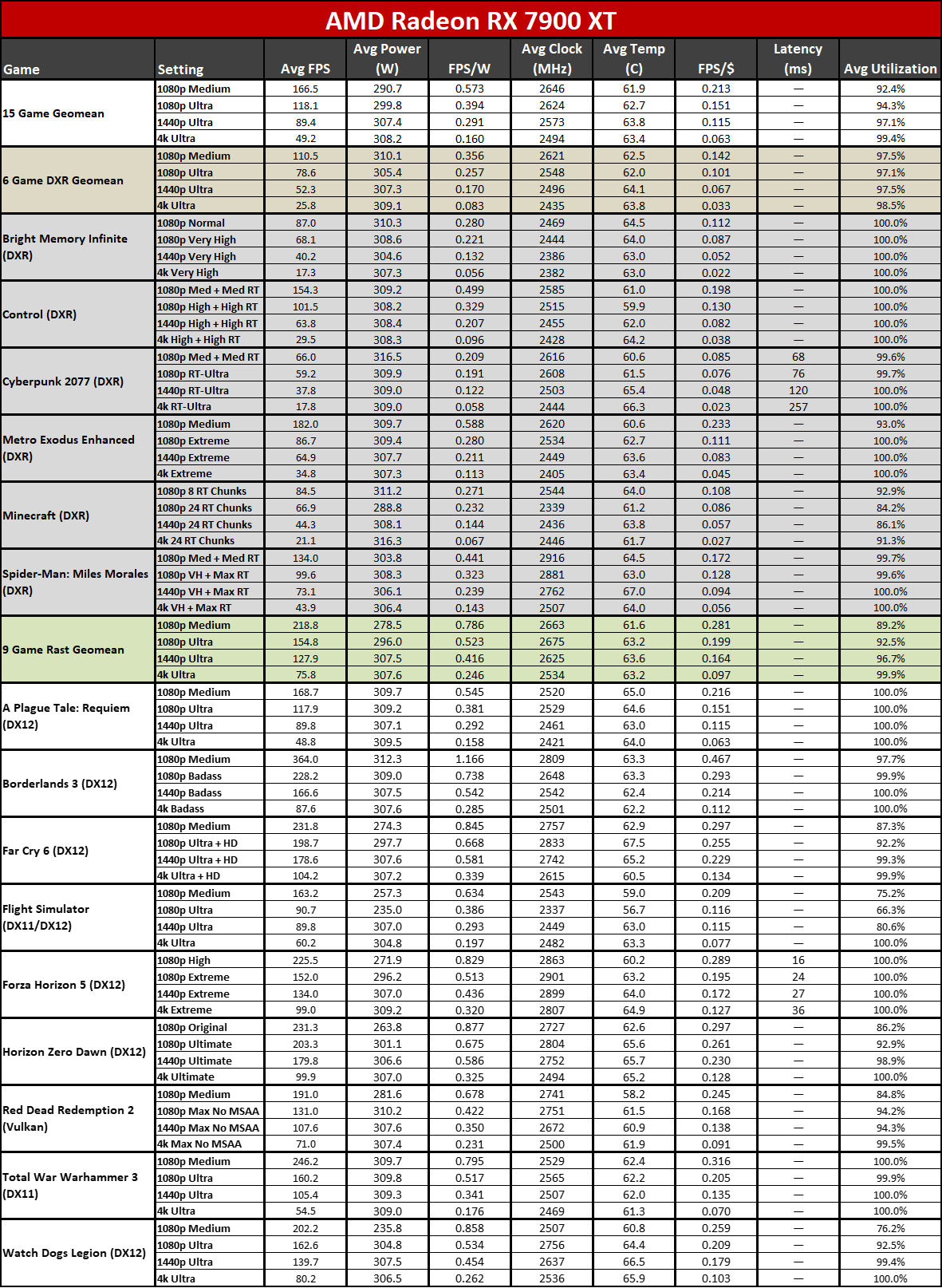
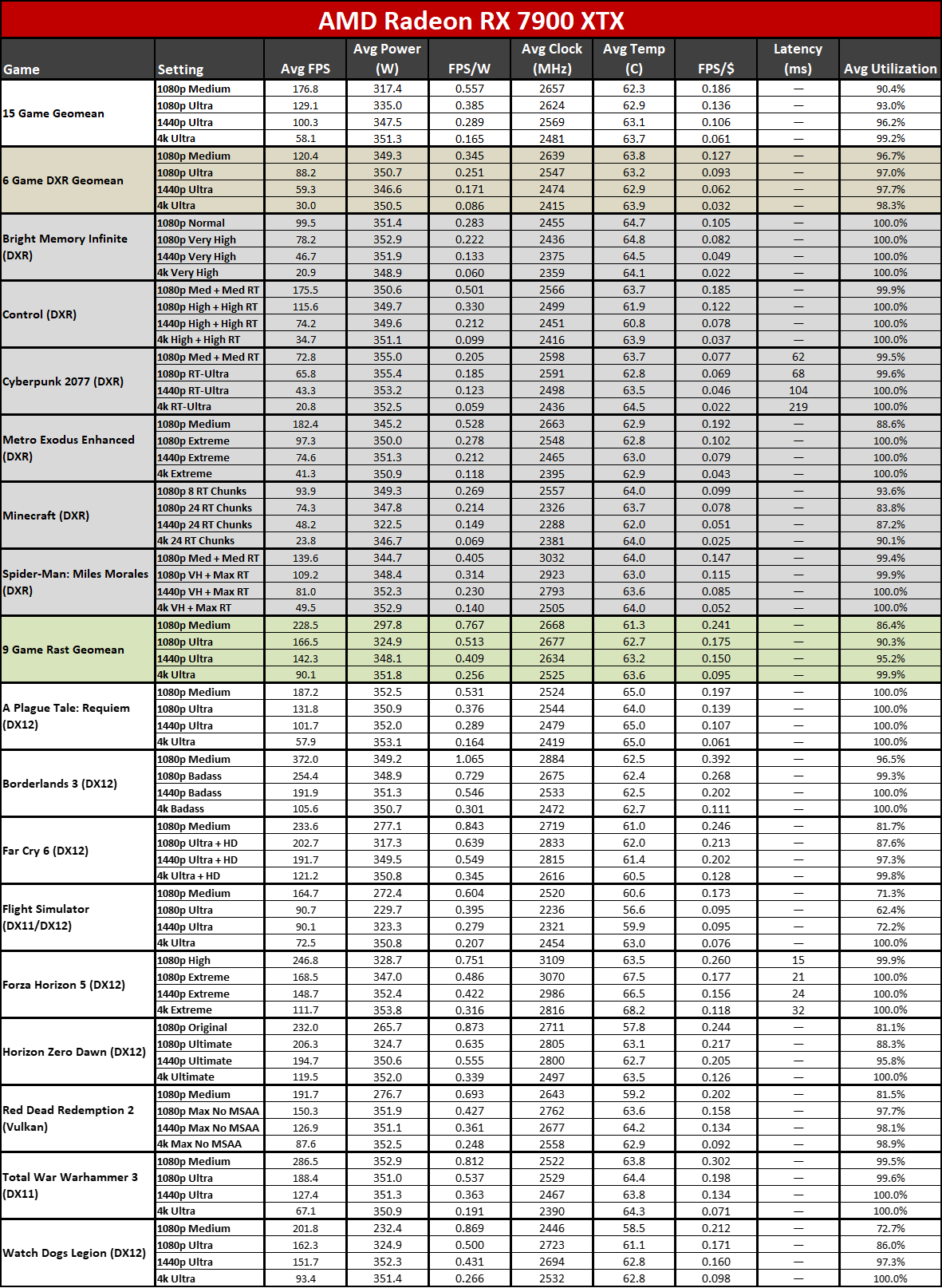
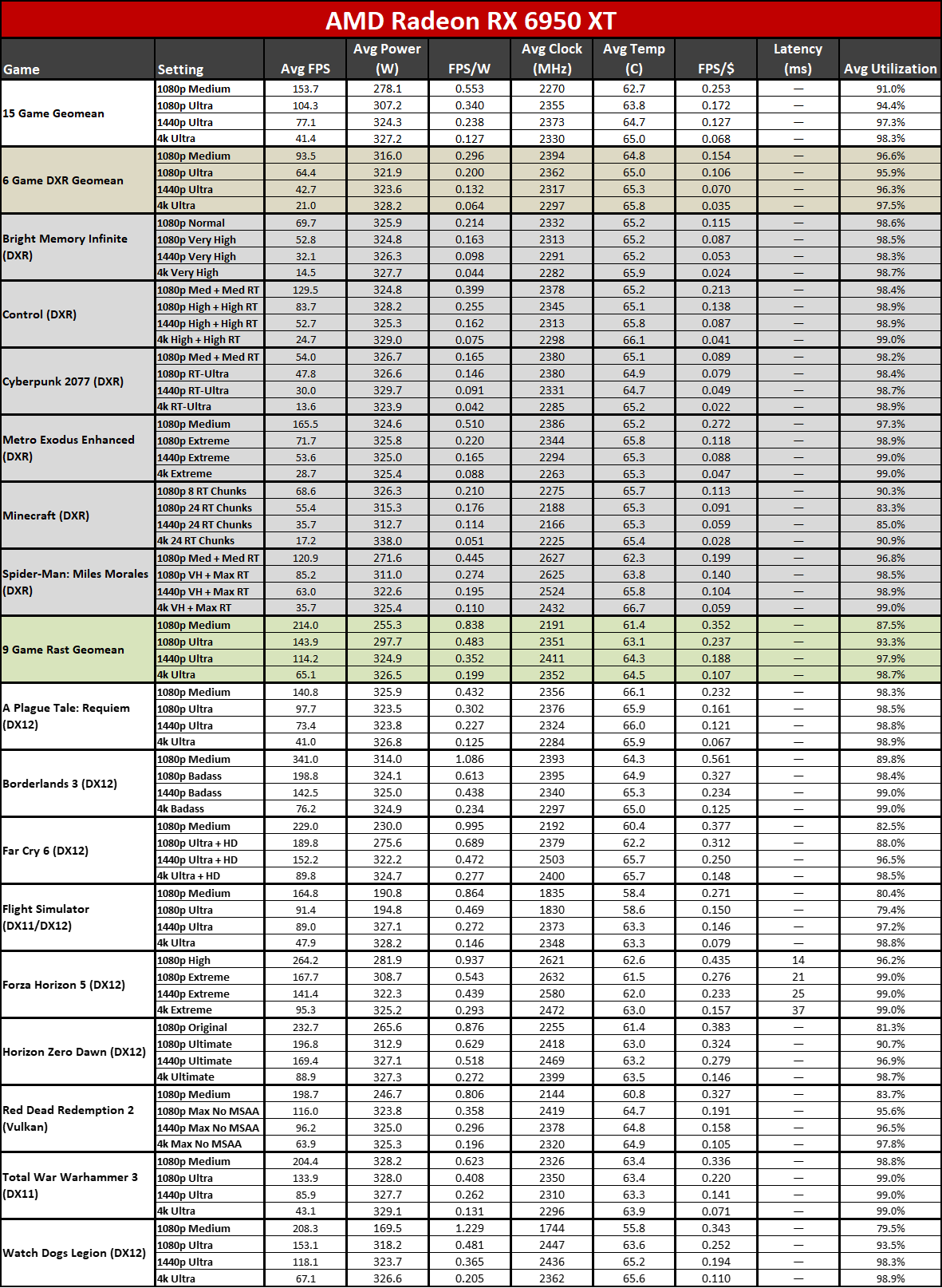
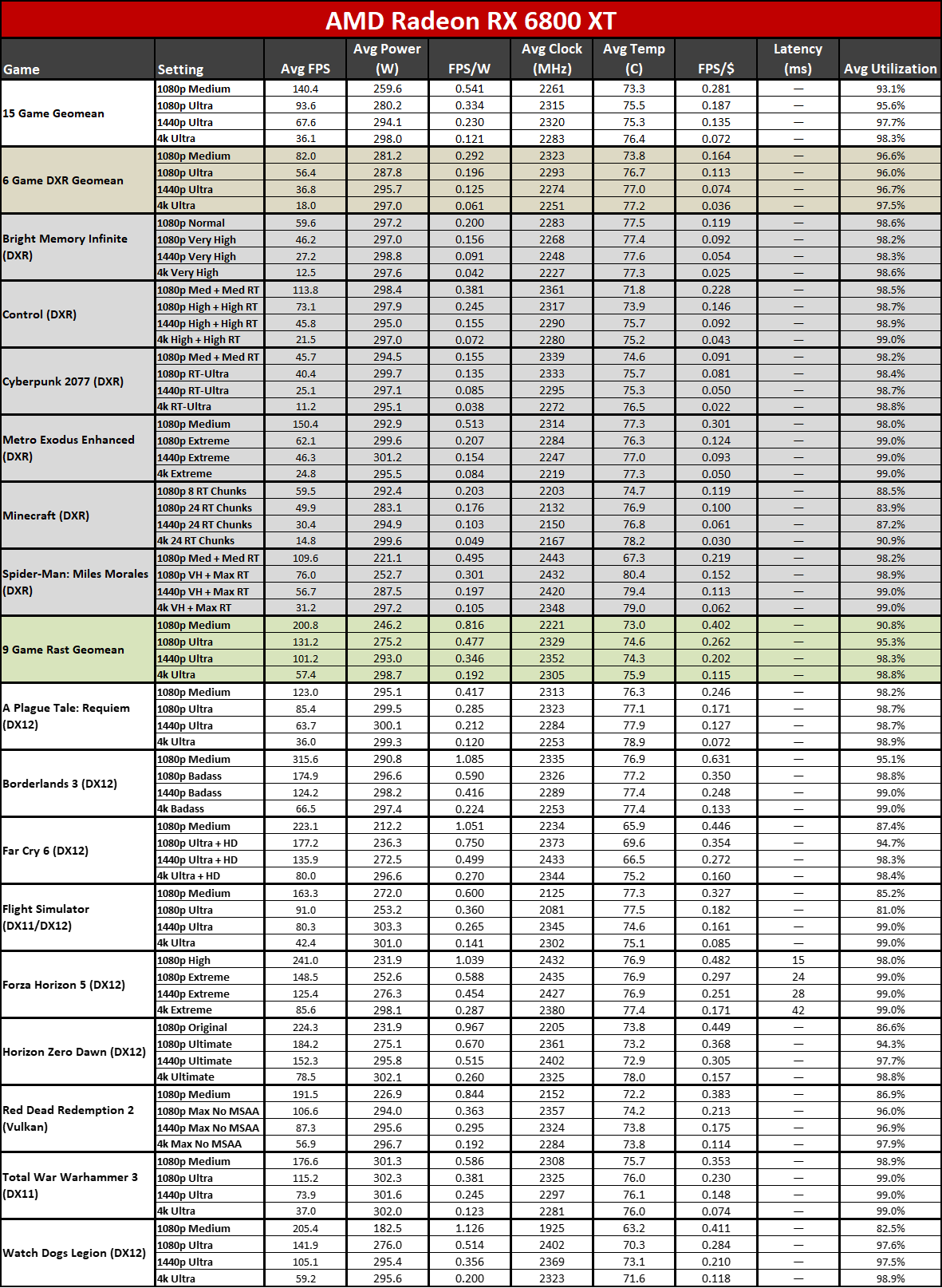
| Graphics Card | FPS/$ | FPS/W | 1080p FPS | 1440p FPS | 4K FPS | Online Price | Power |
|---|---|---|---|---|---|---|---|
| GeForce RTX 4060 Ti | 0.137 | 0.382 | 80.1 | 54.9 | 27.9 | $400 | 144W |
| Radeon RX 6800 XT | 0.131 | 0.222 | 90.1 | 65.4 | 35.1 | $500 | 294W |
| GeForce RTX 4070 | 0.125 | 0.385 | 101.5 | 73.0 | 39.2 | $585 | 190W |
| Radeon RX 6950 XT | 0.118 | 0.230 | 100.4 | 74.5 | 40.2 | $630 | 324W |
| GeForce RTX 4070 Ti | 0.115 | 0.367 | 121.7 | 90.5 | 50.0 | $790 | 246W |
| Radeon RX 7900 XT | 0.111 | 0.281 | 113.2 | 86.2 | 47.8 | $780 | 307W |
| GeForce RTX 4070 Ti Zotac | 0.102 | 0.359 | 122.8 | 90.1 | 49.7 | $880 | 251W |
| Radeon RX 7900 XTX | 0.099 | 0.278 | 123.5 | 96.6 | 56.3 | $980 | 347W |
| GeForce RTX 4080 | 0.098 | 0.412 | 139.0 | 108.3 | 62.7 | $1,108 | 263W |
| GeForce RTX 4090 | 0.084 | 0.397 | 160.0 | 133.2 | 84.8 | $1,589 | 335W |
This final gallery of images shows the full performance test suite, along with the above power, clocks, and temperature information. Latency is also provided, at least in a few of the games. (Spider-Man™: Miles Morales didn't always provide a result for the Nvidia GPUs, and only two games sometimes gave latency values on AMD GPUs.)
We've also calculated efficiency in FPS/W for the various games, plus value in FPS/$ using the best current online prices we could find (usually at Newegg or Amazon, though B&H and Best Buy were also checked). For reference, the Zotac RTX 4070 Ti — Spider-Man™: Across the Spider-Verse card has a price of $879.99. We've summarized those results in the above table (based on 1440p performance and power), sorted by overall value.
All of the Nvidia RTX 40-series GPUs have better efficiency than any of the AMD GPUs, with the RTX 4080 topping the charts for 1440p gaming. (Note that the fps in the table gives weighting to the 1% low FPS, where the gallery images only use average fps.) The Zotac card gets 0.359 FPS/W, slightly below the 0.367 FPS/W of the Asus 4070 Ti.
The value proposition meanwhile generally favors AMD's previous generation RX 6000-series parts. Again, sticking with 1440p, the Zotac RTX 4070 Ti isn't a great value at 0.102 FPS/$, while the Asus card gets 0.115 FPS/$ thanks to its online price of $820. It's also somewhat fun to note that the much-disparaged RTX 4060 Ti actually gets the best value (of the cards tested for this review) with 0.137 FPS/$. Obviously, there are other factors that could be included rather than this pure mathematical ranking.
- MORE: Best Graphics Cards
- MORE: GPU Benchmarks and Hierarchy
- MORE: All Graphics Content
Get Tom's Hardware's best news and in-depth reviews, straight to your inbox.
Current page: Zotac RTX 4070 Ti: Power, Clocks, Temps, and Noise
Prev Page Zotac RTX 4070 Ti: 1080p Gaming Performance Next Page Zotac RTX 4070 Ti: Powering the Hero
Jarred Walton is a senior editor at Tom's Hardware focusing on everything GPU. He has been working as a tech journalist since 2004, writing for AnandTech, Maximum PC, and PC Gamer. From the first S3 Virge '3D decelerators' to today's GPUs, Jarred keeps up with all the latest graphics trends and is the one to ask about game performance.
-
g-unit1111 The fact it says "exclusively in theaters" below the Across The Spiderverse logo really ruins it, it makes it look like you're paying for a permanent advertisement in your PC.Reply
I bought the Zotac 4070TI for my PC but I wouldn't buy the limited edition version. -
JarredWaltonGPU Reply
It really is quite tacky, isn't it? LOL. I just don't know who actually thinks stuff like this is a good idea. Because guess what? In six months, it's sure not going to still be "Exclusively in Cinemas!"g-unit1111 said:The fact it says "exclusively in theaters" below the Across The Spiderverse logo really ruins it, it makes it look like you're paying for a permanent advertisement in your PC.
I bought the Zotac 4070TI for my PC but I wouldn't buy the limited edition version. -
g-unit1111 ReplyJarredWaltonGPU said:It really is quite tacky, isn't it? LOL. I just don't know who actually thinks stuff like this is a good idea. Because guess what? In six months, it's sure not going to still be "Exclusively in Cinemas!"
Two at this rate, LOL! -
JarredWaltonGPU Reply
Careful, the Justice League™ or Avengers™ might have to track you down!Tom Sunday said:If I would be purchasing an expensive GPU like this…I will not care about Superman, Spiderman or Batman. I want proven and sheer demonstrated quality and performance. What is the matter with ZOTAC trying to enhance the sales of the 4070 Ti with a cartoon character? Today the 4070 Ti AMP Extreme at AMAZON is $900. Most certainly a big $$$ reach for the man on the street. And especially in the midst of a major U.S tech-downturn with sales at their lowest at this point in time! -
cryoburner Reply
Perhaps they thought the text would serve as a distraction from the hideous design. The layout of characters just looks bad, like an image you might expect to appear on a box of cereal or something, and the background color scheme ensures that the card won't look right with practically any PC in existence.JarredWaltonGPU said:It really is quite tacky, isn't it? LOL. I just don't know who actually thinks stuff like this is a good idea. Because guess what? In six months, it's sure not going to still be "Exclusively in Cinemas!"
